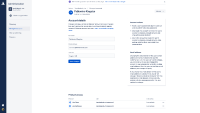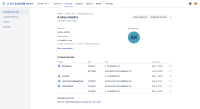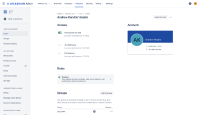-
Bug
-
Resolution: Fixed
-
High
-
None
-
97
-
Major
-
Issue Summary
When successfully logging in a Cloud site with a Managed Account, the Last Seen information is updated in the Site Administration, while the Last Active in the Organization does not.
Additional comments
- Performed an attempt using Can't Login;
- Performed an attempt authenticating using the credentials.
Environment
- Had SAML SSO set up with Azure and was able to reproduce the behavior;
- Removed the SAML integration and was able to reproduce the behavior.
Steps to Reproduce
- Create an organization and verify your domain;
- Add your site;
- Login using the site URL or http://id.atlassian.com
Expected Results
Both Last Seen and Last Active would be updated.
Actual Results
Only the Last Seen is updated.
Workaround
Currently there is no known workaround for this behavior. A workaround will be added here when available
- is related to
-
CLOUD-10652 User "Last active" information is not accurate
- Closed
- relates to
-
AX-1001 Last Active inform inaccurate time
-
- Closed
-
- is blocked by
-
PC-13655 Loading...
- mentioned in
-
Page Loading...
-
Page Loading...
-
Page Loading...
-
Page Loading...
-
Page Loading...
-
Page Loading...
-
Page Loading...
-
Page Loading...
-
Page Loading...
-
Page Loading...
-
Page Loading...
-
Page Loading...
-
Page Loading...
-
Page Loading...
-
Page Loading...
-
Page Loading...
-
Page Loading...
-
Page Loading...
-
Page Loading...
-
Page Loading...
-
Page Loading...



